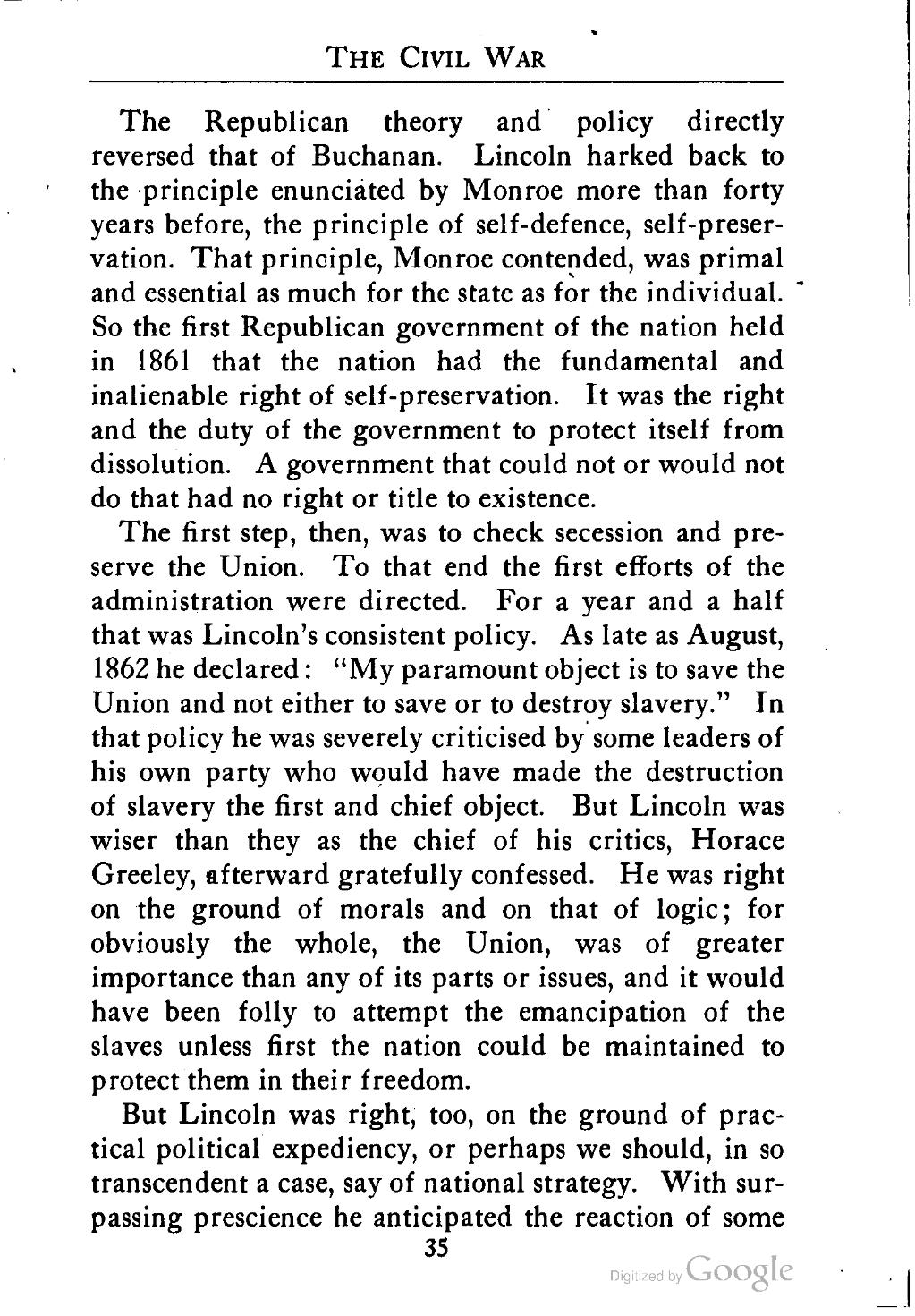The Civil War
The Republican theory and policy directly reversed that of Buchanan. Lincoln harked back to the principle enunciated by Monroe more than forty years before, the principle of self—defence, self—preservation. That principle, Monroe contended, was primal and essential as much for the state as for the individual. So the first Republican government of the nation held in 1861 that the nation had the fundamental and inalienable right of self-preservation. It was the right and the duty of the government to protect itself from dissolution. A government that could not or would not do that had no right or title to existence.
The first step, then, was to check secession and preserve the Union. To that end the first efforts of the administration were directed. For a year and a half that was Lincoln’s consistent policy. As late as August, 1862 he declared: "My paramount object is to save the Union and not either to save or to destroy slavery." In that policy he was severely criticised by some leaders of his own party who would have made the destruction of slavery the first and chief object. But Lincoln was wiser than they as the chief of his critics, Horace Greeley, afterward gratefully confessed. He was right on the ground of morals and on that of logic; for obviously the whole, the Union, was of greater importance than any of its parts or issues, and it would have been folly to attempt the emancipation of the slaves unless first the nation could be maintained to protect them in their freedom.
But Lincoln was right, too, on the ground of practical political expediency, or perhaps we should, in so transcendent a case, say of national strategy. With surpassing prescience he anticipated the reaction of some
35
